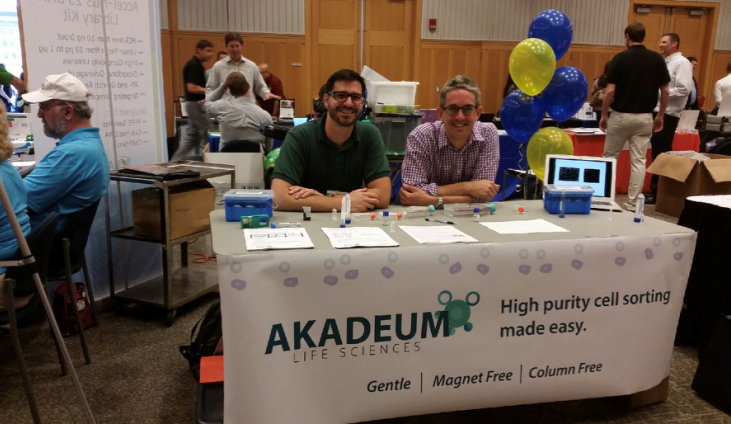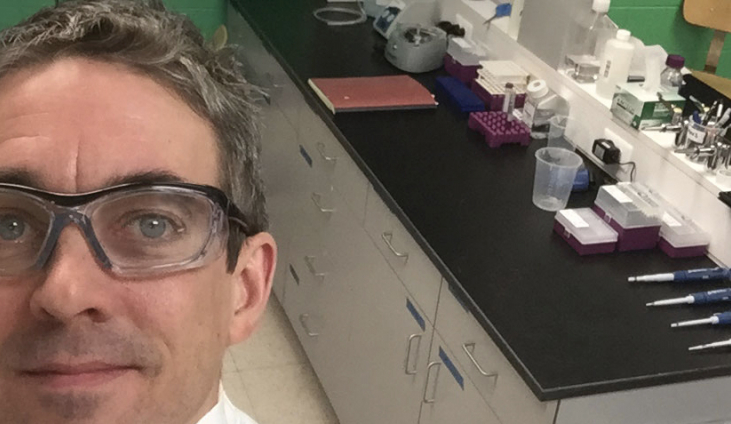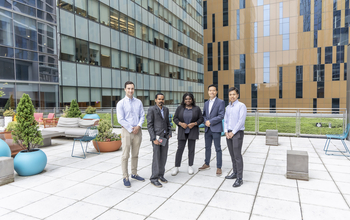As much or more so than any other region in the country, Philadelphia will have the ideas, the talent, and the mettle to make the back half of 2020 as revolutionary a period as that other revolutionary period we’re known for. I can hardly wait.
When you set out to grow an idea into a thriving business, you often bring together individuals with varied expertise; from business-savvy investors and advisors, founders who think big, technical specialists who can execute on a vision, along with a wide range of other disciplines.
In pursuit of the next chapter and refined vision of our commercialization programs, we recruited John Younger, MD last summer to steer the ship. He’s filled many of the roles necessary to build a successful company himself; a former emergency room physician turned technical founder and member of the National Advisory Council of the National Institute of General Medical Sciences. In short, someone who has navigated the playing field from different angles. Find out why the current global crisis is personal to him and how the second half of 2020 is ripe for an entrepreneurial revolution.
The pace at which we have learned the secrets of this thing, and started to sharpen our swords against it, is simply breathtaking.
In your previous careers, you’ve been a front-line doc, built a start-up around technologies similar to those being deployed diagnostically against SARS-CoV-2, and served as an advisor to the NIH in relation to how it studies life threatening infections. What do you make of this moment?
It may seem strange, but I feel really fortunate. One of my great-grandfathers was killed by the Spanish Flu a little over one hundred years ago. It wasn’t until 1933 (15 years later) that influenza was finally shown to be caused by a virus. It would take until 1999 (81 years) for oseltamivir to be FDA approved as an effective antiviral for the disease. SARS-CoV-2, the virus that causes COVID-19, was identified on January 7th, 2020. Its gene sequence was published one month later, and by March, 2020 ( < 90 days), biopharma companies had already isolated antibodies capable of killing the virus in the lab – the first step in making new drugs. The pace at which we have learned the secrets of this thing, and started to sharpen our swords against it, is simply breathtaking. The response from our local community alone has been nothing short of remarkable.
But at the same time, the difficulty with which our country has geared up for the fight is equally breathtaking. For most of my career, the scientific and start-up communities have really loved a great new drug, but haven’t devoted the same attention or capital to less glamourous but now self-evidently critical infrastructure. A lot of lessons learned from the similarly scary HIV epidemic thirty years ago – the importance of community engagement, the fact that technology only goes so far in stopping an aggressive infectious disease – are needing to be relearned.
What are you most proud of since joining the Science Center?
The commercialization team at the Science Center has my daily and complete admiration. Their passion for their programs was evident from the first phone interviews they had with me when I was applying for my job, and this Spring I haven’t seen that drive let up for even a moment. I can’t overstate how important their start-up acceleration experience is going to be to the region in the next six months, and I can’t declare loudly enough how ideally matched the team is to the task.
COVID-19 has scrambled the plans of so many start-ups. What do the next six months look like to you? Are there opportunities?
There are a LOT of opportunities. Although it’s a bit dated, the core idea of ‘The Innovator’s Dilemma’ is that well-established business models are susceptible to disruption by small, fast-moving groups that can clearly understand market demand and can take advantage of the inefficiencies of existing businesses. The last 60 days have offered a very unfortunate but very glaring display of poorly met needs, unaddressed operational pain points, and openings for entrepreneurs willing to take their shot. As much or more so than any other region in the country, Philadelphia will have the ideas, the talent, and the mettle to make the back half of 2020 as revolutionary a period as that other revolutionary period we’re known for. I can hardly wait.
You’ve been involved in so many facets of the biomedical enterprise in your career. Besides your day job, are you doing anything else related to COVID-19?
I’m currently chairing the data and safety monitoring boards (DSMBs) for several randomized clinical trials against COVID-19, a couple out of U Penn and others led by the University of Minnesota and Mayo Clinic. All are looking at a common and inexpensive blood pressure medicine that acts on the same protein that SARS-CoV-2 uses to invade cells. There’s currently a lot of interest in whether the drug could reduce the number of hospitalizations or even improve mortality. DSMBs are responsible for overseeing how trials are carried out. Also, and especially in COVID-19 where we’re learning so much so quickly, they are tasked with keeping an eye out for unexpected harm or benefit in new therapies. These trials are up and running, enrolling patients, and quickly expanding to become national multicenter trials. I’ve been really blessed with the opportunity to apply my previous clinical and research experience to move new therapies forward and protect patients along the way.
Obligatory question for Philly transplant: where’s the first place you’ll go once things start to re-open?
30th Street Station. Apologies to Ol’ Blue Eyes, but if you can make it there, you can make it anywhere.





